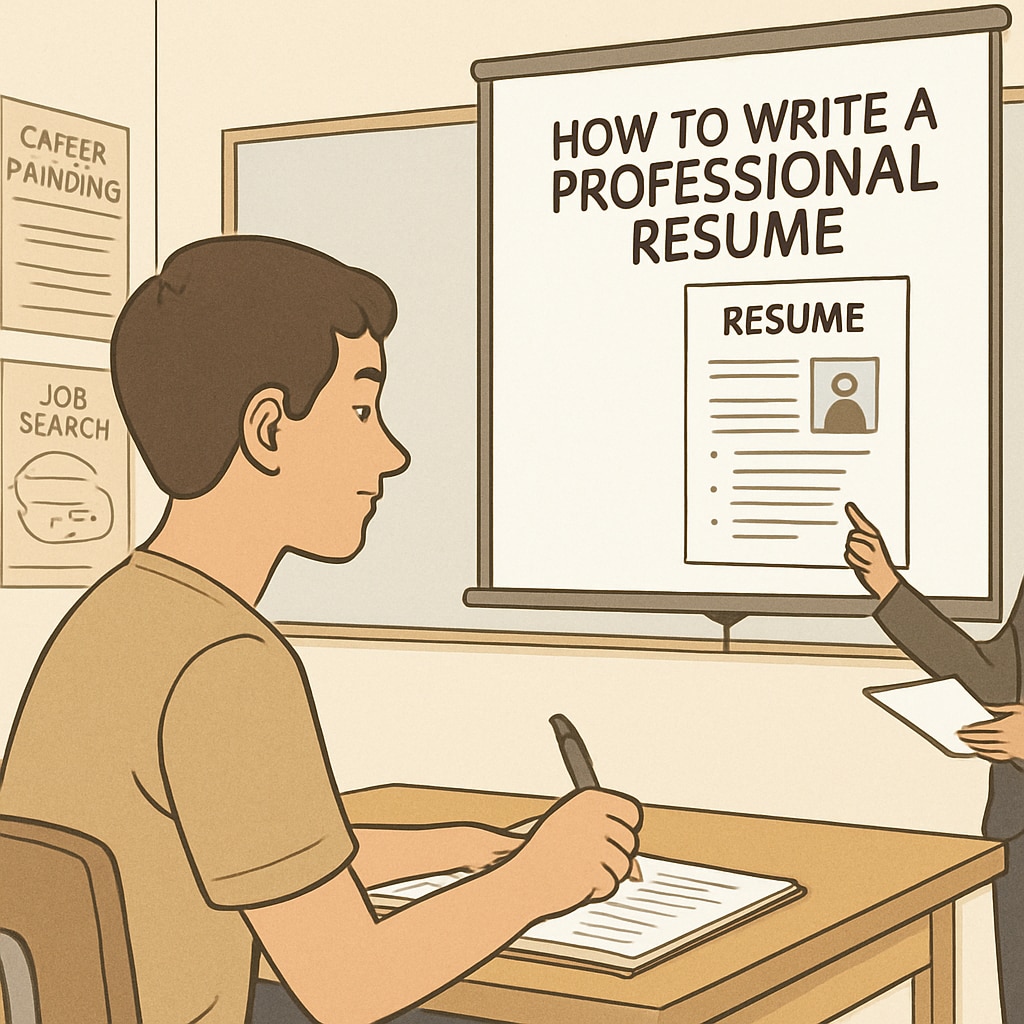The modern workforce is rapidly evolving, making career readiness an essential part of education. In Canada, resume writing and job market awareness are critical tools for success, even for students in their formative years. By incorporating career planning into K12 education, schools can empower students to develop the skills needed for both local and global job markets.
Why Career Preparation Matters in K12 Education
Career preparation during the K12 years lays the foundation for lifelong success. It goes beyond academic achievements, focusing on practical skills like resume writing, interview techniques, and professional networking. These skills are particularly vital for students aiming to enter the Canadian job market, which values clear communication and adaptability.
For example, Canadian resumes often differ from those in other countries. They emphasize concise formats, measurable achievements, and tailored content based on job descriptions. Introducing these concepts early helps students understand what employers look for and prepares them for future opportunities.

Global Perspectives: Preparing Students for Cross-Border Opportunities
In today’s interconnected world, students must be equipped to navigate cross-border career landscapes. Schools can integrate global perspectives into their curriculums by teaching students about international job markets, including Canada’s. This approach not only broadens their horizons but also enhances their adaptability and cultural competence.
For instance, incorporating workshops on Canadian resume formats and job application procedures can provide valuable insights into international standards. Additionally, discussions on global career trends, such as remote work and digital skills, can prepare students for a wide range of roles in various industries.

Practical Steps for Schools to Foster Career Awareness
To ensure students are well-prepared for their future careers, schools can adopt several strategies:
- Resume Workshops: Offer sessions that teach students how to craft resumes tailored to specific industries, including Canadian standards.
- Career Mentorship Programs: Connect students with professionals who can provide guidance on career paths and workplace expectations.
- International Collaboration: Partner with schools and organizations from other countries, including Canada, to expose students to diverse career opportunities.
- Skill Development: Focus on soft skills like communication, problem-solving, and teamwork, which are highly valued in the Canadian job market.
By implementing these initiatives, schools can equip students with the tools they need to succeed in both local and international job markets.
The Role of Parents in Career Planning
Parents play a crucial role in shaping their children’s career aspirations. They can support schools’ efforts by encouraging exploration of various interests and providing resources for career research. For example, parents can guide students to platforms like Britannica’s guide on job descriptions or Wikipedia’s overview of resumes to deepen their understanding of career requirements.
Additionally, parents can foster a growth mindset by celebrating achievements and emphasizing the importance of lifelong learning. This approach ensures students remain motivated and open to new opportunities as they progress through their educational and professional journeys.
As a result, parents and educators working together can create an environment that nurtures career readiness and prepares students for the challenges of the future workforce.
Conclusion: Paving the Way for Success
Integrating career preparation into K12 education equips students with the skills and knowledge they need to thrive in a competitive job market. By focusing on areas like resume writing, global perspectives, and skill development, schools can help students navigate both local and international career landscapes, including Canada’s. Parents, too, play a critical role in fostering career awareness and supporting their children’s aspirations.
In a world where globalization and technology continue to reshape industries, preparing students for cross-border opportunities is not just beneficial—it’s essential. With the right guidance, students can confidently step into their futures and achieve success in any career they choose.
Readability guidance: This article uses clear and concise language to ensure accessibility. Short paragraphs, bullet points, and overviews of key concepts make it engaging and easy to follow for all readers.


